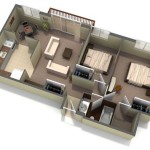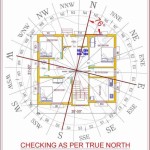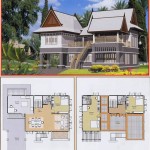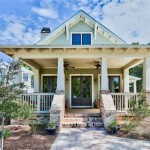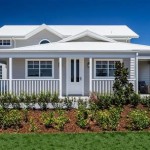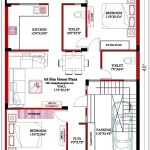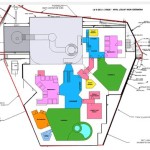Plantation House Plans Hawaii
Hawaii's architectural landscape is rich with diverse influences, reflecting its unique history and cultural melting pot. Among the most recognizable and beloved styles are plantation houses, which evoke a sense of nostalgia and timeless elegance. These homes, born out of practicality and adapted to the tropical climate, continue to inspire contemporary designs.
Key Features of Hawaiian Plantation Style
Plantation homes boast several distinctive characteristics that set them apart. Understanding these key elements helps appreciate their enduring appeal and provides a blueprint for incorporating the style into modern building plans.
* Large, inviting verandas or lanais: These covered outdoor spaces are integral to plantation-style living, providing shade from the sun and capturing cooling breezes. * High ceilings and numerous windows: These features promote natural ventilation and airflow, essential for comfort in Hawaii's warm climate. * Simple, symmetrical facades: Plantation houses typically feature clean lines and balanced proportions. * Single-wall construction: Originally a cost-effective building method, single-wall construction contributes to the airy feel of these homes. * Locally sourced materials: Traditionally, materials like koa wood and lava rock were incorporated, reflecting a connection to the land.
Adapting Plantation Style for Modern Living
While traditional plantation houses hold historical significance, modern interpretations allow for incorporating updated amenities and functionalities while preserving the essence of the style.
* Open floor plans: Contemporary plantation homes often feature open-concept living areas, promoting a sense of spaciousness and connectivity. * Modern kitchens and bathrooms: Updated appliances and fixtures can be seamlessly integrated while maintaining the overall aesthetic. * Energy-efficient features: Incorporating sustainable design elements, such as solar panels and energy-efficient windows, enhances both comfort and environmental responsibility.
Considerations for Building a Plantation House in Hawaii
Embarking on a building project in Hawaii requires careful planning and consideration of various factors specific to the islands.
* Climate and weather patterns: Designs should prioritize resilience to strong winds, heavy rainfall, and potential hurricane activity. * Terrain and topography: The location's slope and soil conditions can influence foundation design and construction methods. * Local building codes and regulations: Compliance with specific building codes and permitting requirements is essential for any construction project in Hawaii. * Availability of local materials: Utilizing locally sourced materials can reduce transportation costs and support the local economy.
Finding the Right Plantation House Plan
Numerous resources are available for finding plantation house plans tailored to Hawaii's unique environment and building requirements. Careful research and selection are crucial for ensuring a successful project.
* Architectural firms specializing in Hawaiian style: Collaborating with experienced architects ensures a design that complements the surrounding landscape and incorporates local building practices. * Online plan databases: Several online platforms offer a wide selection of house plans, including plantation-style designs adapted for Hawaii. * Custom design options: For those seeking a truly personalized home, working with an architect to create a custom design provides maximum flexibility and control.
Incorporating Sustainable Practices
Building a sustainable plantation-style home in Hawaii is not only environmentally responsible but can also lead to long-term cost savings and improved comfort.
* Passive cooling strategies: Maximizing natural ventilation and incorporating shading elements can reduce reliance on air conditioning. * Rainwater harvesting: Collecting rainwater for landscaping and other non-potable uses conserves water resources. * Solar energy integration: Hawaii's abundant sunshine makes solar power a viable option for reducing energy consumption. * Use of sustainable building materials: Choosing eco-friendly materials, such as bamboo or reclaimed wood, minimizes environmental impact.
Landscaping and Outdoor Living
The landscaping surrounding a plantation house plays a vital role in creating a harmonious and inviting outdoor living space.
* Native Hawaiian plants: Incorporating native flora enhances the property's beauty while supporting local biodiversity. * Outdoor entertainment areas: Designing designated spaces for dining, lounging, and entertaining extends the living area outdoors. * Privacy considerations: Strategic placement of landscaping elements can create privacy screens and enhance the sense of seclusion.
Preserving Hawaii's Architectural Heritage
Plantation-style homes represent a significant part of Hawaii's architectural history. By understanding and appreciating the key elements of this style, individuals can contribute to preserving its legacy for future generations.
* Historical research: Learning about the history of plantation houses in Hawaii provides valuable insights for design and construction. * Community engagement: Participating in local preservation efforts helps protect and maintain historic properties. * Adaptive reuse of existing structures: Renovating and repurposing existing plantation homes can be a sustainable alternative to new construction.

Plantation Style Architecture Kaua I Kui Ula

Loading Hawaiian House Plantation Style Homes

Home Design House Plans 11640 Plantation Style Homes

Hawaiian Plantation Villa Tropical Exterior Hawaii By Trigg Smith Architects Houzz

Popular Hawaiian Home Styles And Pre Design Options Luva Real Estate

Hawaiian Style Plantation Home With Guest House On Kalihiwai Ridge Hawaii Real Estate Market Trends Life

The Visionary Space Hawaiian Plantation Style Homes

Luxury Plantation Style Home On Kauai New Construction Oahu Hawaii Real Estate Blog Kailua And Homes For

Beach Style House Plan 3 Beds 5 Baths 1997 Sq Ft 426 14 Plantation Plans Ranch

Lehua Plantation Longhouse Design Build

